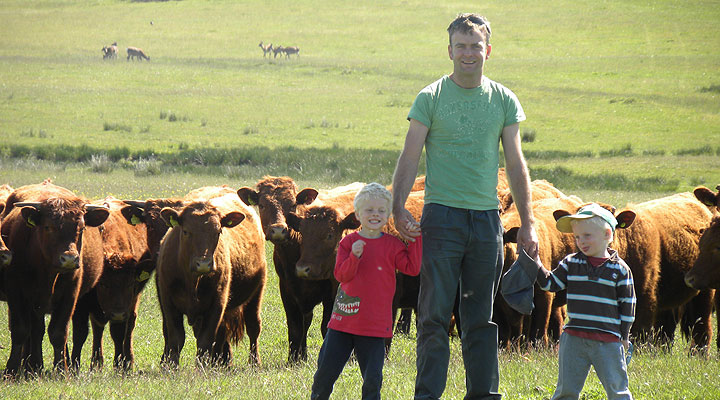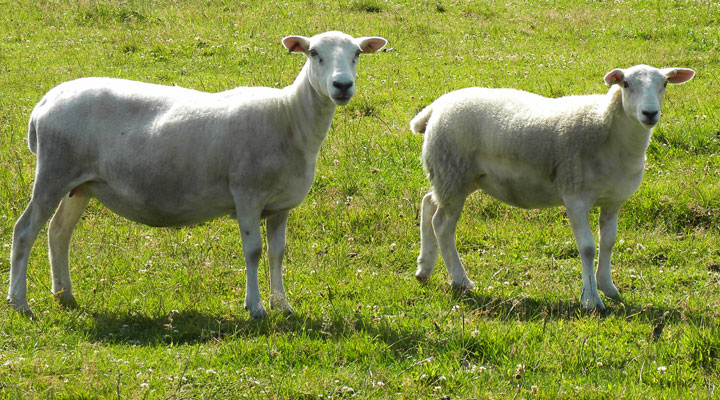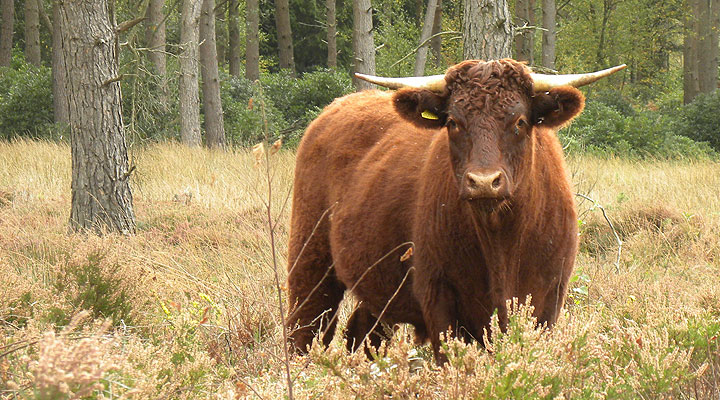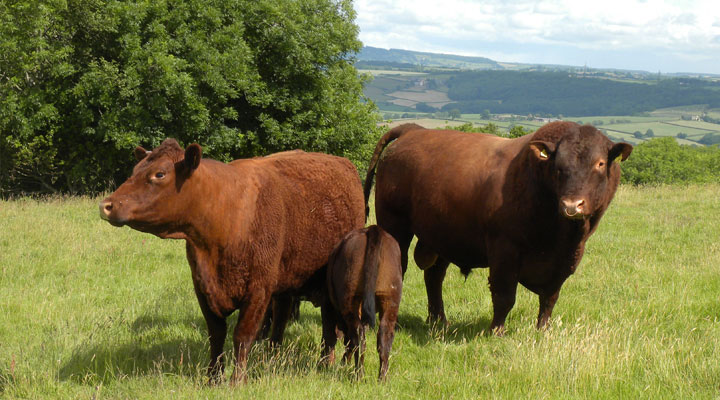Pasture for Life – Case Study – Jake Hancock, Dorset

Jake and Chrissy Hancock run Wessex Conservation Grazing, providing land management and maintenance of wildlife on several sites across Dorset.
Having worked for the National Trust and Soil Association for ten years as a farming and environment adviser, Jake established the business as a part time addition to his regular job in 2006. But by 2009, the new business had become his full-time occupation.
He now works closely with landowners and conservation groups to deliver sustainable land and livestock management for each area of land. He does this mainly by using native breed beef cattle suitable for rough pasture and sites of high nature conservation value. He offers a service for both organic and non-organic farms and sites – although any stock is managed on an organic, low input, high welfare basis.
As well as his clients’ cattle, Jake also has 45 of his own Devon cross Aberdeen Angus cross breeding cows, which are mated with a red Aberdeen Angus bull. The calves are kept for a year before being sold and moved on to National Trust land for their second summer. At 20 months of age they are sold onto a finisher and retailed through Waitrose on a premium scheme.
“We keep three or four of the cattle to kill and retail direct to local people but that is all,” says Jake. “We are too busy with all the other stuff to let meat retailing take over.”

Exlana cross sheep
On the sheep side of the business, Jake runs 300 wool-shedding, Exlana cross breeding ewes, with 200 at Trill Farm in Axminster and 100 grazing on National Trust land near Corfe Castle. There they act as a flying flock with the aim of controlling ragwort problems.
“We started with Lleyns and Cheviots but are now 60 to 70% Exlana,” Jake explains. “In our breeding we focus on natural health and vigour with commercial standards and a simple management routine. We have no interest in what they look like, just their practical performance. Last year we started performance recording all our ewes and lambs.
“We don’t have to shear, crutch or belly the ewes and the incidence of fly strike or the ewes being cast or caught up in the brambles is massively reduced. They are also very good doers off grass and no concentrates. This is the reason why we signed up to Pasture for Life.”
Lambing takes place between 15 March and 30 April and is all outdoors. Jake starts weaning the lambs from early July and this year has sold most through Eversfield Organic.
These lambs have been reared only on nature reserves or organic fields, without any artificial fertiliser or pesticides. The animals all graze extensively, and the stock is 100% grass and conserved forage fed. The beef is hung for 21 days post-slaughter and the lamb for seven days.

Premium prices
“The sheep flock is flying economically – there’s a bit of rent and a little bit of labour and that’s about it,” says Jake. “It’s good to know that there is an outlet for Pasture for Life animals and that we get a premium for them.”
Jake also manages 150 cattle on National Trust land under HLS schemes around Poole Harbour; attempting to restore heathland that had been ‘improved’ for dairying in the 1960s.
“It is taking a long time to get back to what it was, but the National Trust is happy with how it is going,” says Jake. “In fact they say that the acid grassland the cattle have helped produce is now even rarer than heath.”




